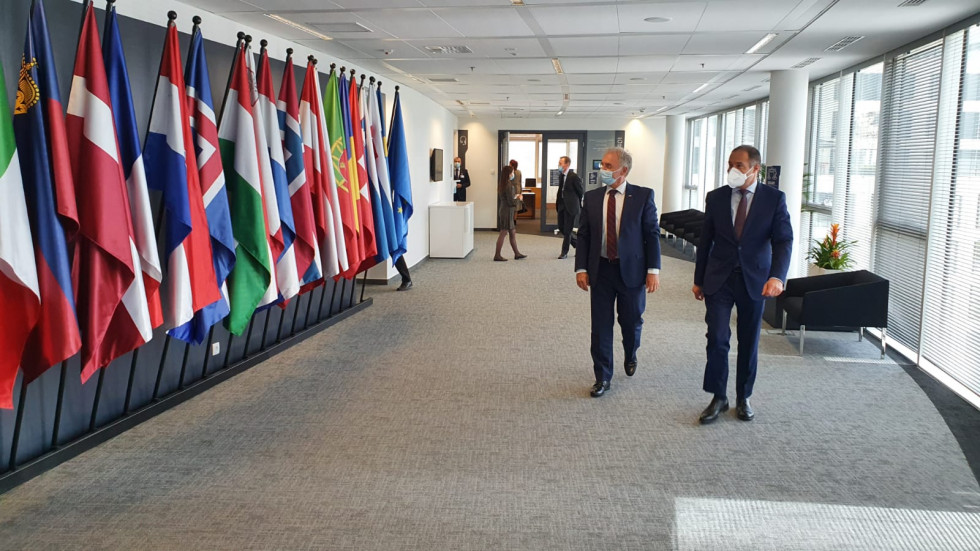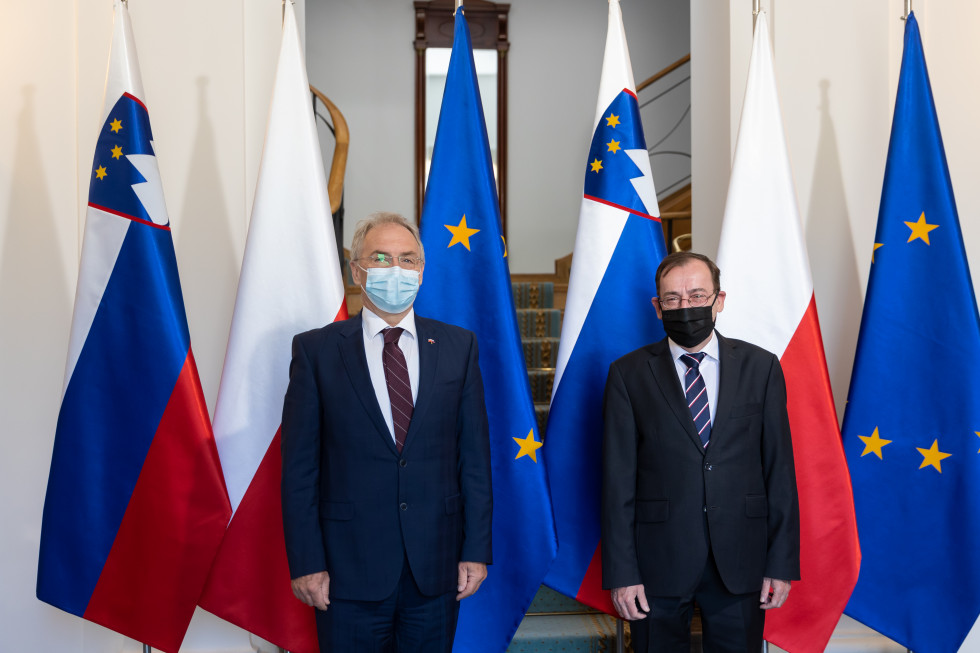Minister Hojs makes a working visit to Poland
Both Slovenia and Poland promote the elimination of causes for migration and the external dimension of migration, especially more effective return. The Ministers agreed that the European Commission and the European External Action Service (EEAS) should step up talks with key partner countries as soon as possible.
Poland prefers the legislative acts under the Pact on Migration and Asylum to be considered and adopted as a package. Mr Hojs presented Slovenia’s position on this matter: “Progress towards a comprehensive EU migration policy could be achieved on the proposal for a regulation on the EU Asylum Agency, which would be exempted from the package. The European Asylum Support Office (EASO) urgently needs a new, broader mandate to provide operational support to Member States.”
Like other Baltic countries, Poland will shortly deploy a group of police officers to Slovenia to assist the Slovenian police in controlling the border with Croatia. Mr Hojs thanked his counterpart for Poland’s solidarity.
The Presidency will also strive to ensure a high level of security across the EU. “As for internal security, Mr Kamiński welcomed our priority to promote police cooperation and information exchange. Poland will also support our Presidency in negotiations to strengthen Europol’s mandate,” said Mr Hojs.
He concluded his working visit to Poland with a meeting with the Executive Director of the European Border and Coast Guard Agency (Frontex), Fabrice Leggeri. They discussed the new mandate of Frontex, which is one of the most important EU agencies in the area of justice and home affairs, especially in view of security in the EU. They focused on how Frontex could best adapt to the expanded powers granted to it by the new regulation adopted just over a year ago.
“Slovenia fulfils its obligations under the regulation with regard to participation in the Standing Corps,” said Mr Hojs. Director Leggeri agreed that Slovenia, with a number of officers working for Frontex and Marko Gašperlin, Assistant Director of the Uniformed Police Directorate serving his second term as Chairman of its Management Board, is extremely active in the work of the Agency, given the country’s small size.
Mr Hojs and Mr Leggeri also talked about the Agency’s engagement in the Western Balkans. Frontex is already devoting a great deal of attention to this region, especially through information exchange and analysis. It also provides operational support to some countries such as Albania and Montenegro, with which the Agency has already concluded status agreements. “Slovenia, like Frontex, would like to see a similar agreement concluded with Serbia in the shortest possible time. Frontex should also be engaged in North Macedonia and in Bosnia and Herzegovina as soon as possible, providing practical assistance to the local law enforcement and border authorities in managing migration.”

Minister Hojs with the Executive Director of the European Border and Coast Guard Agency (Frontex) Fabrice Leggeri | Author MNZ


